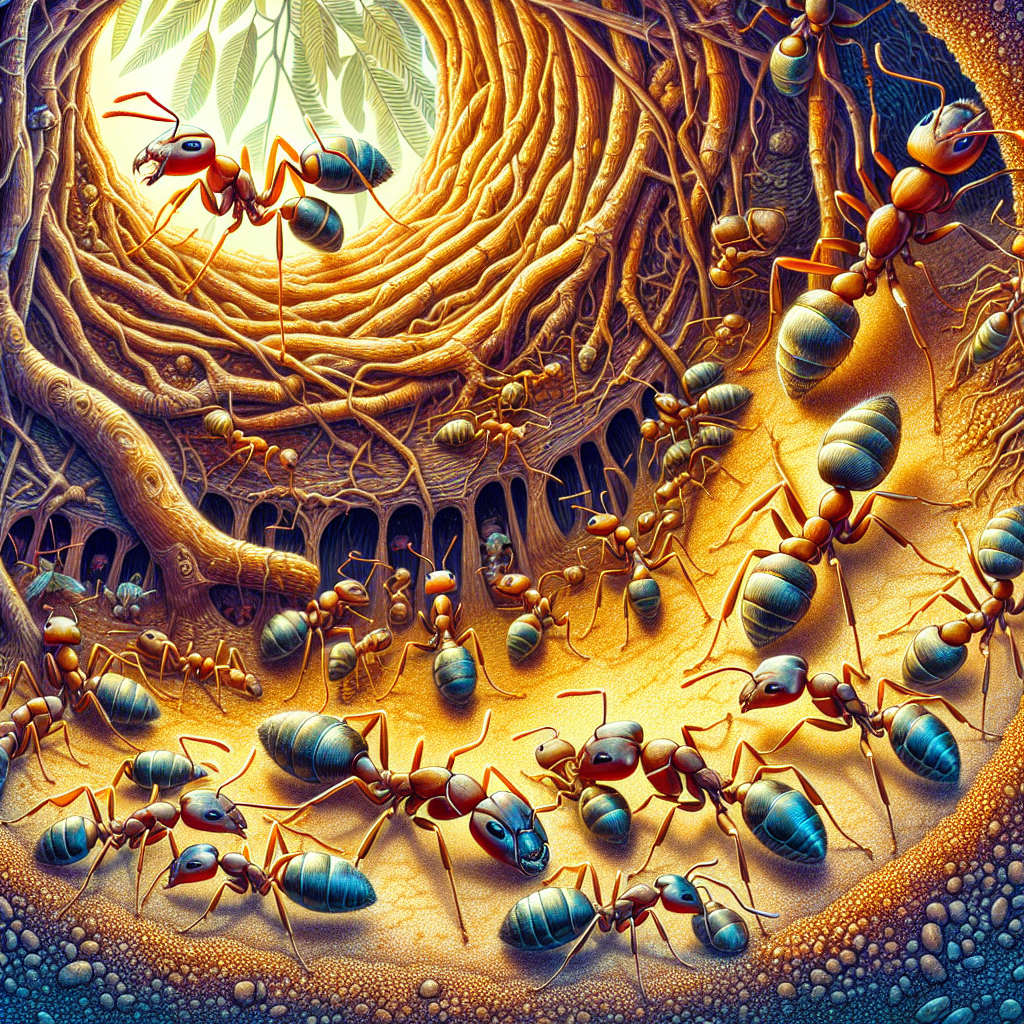The Cultural Evolution of Knowledge: Ants, Humans, and the Pursuit of Understanding
The perennial comparison between ants and humans illuminates a fascinating crossroads – one where the boundaries of intelligence, culture, and technological advancement collide. This analysis delves deep into the profound insights surrounding the cultural evolution of knowledge, positing that while ants exhibit remarkable organizational strategies akin to farming, they remain miles away from the scientific advancements enjoyed by humans. This exploration examines the trajectory of human cognitive development, the pivotal role of culture in shaping knowledge, and the distinct processes that set our species apart from even the most sophisticated of social insects.
The Remarkable World of Ants
Ants, often overlooked as mere pests, are a testament to the power of collective effort. They have effectively mastered several techniques that resemble human innovations: farming, livestock rearing, and labor division. For instance, certain species cultivate fungi, providing food for their colonies while simultaneously engaging in symbiotic relationships with aphids, which they "farm" for honeydew. Such behaviors signify a form of cultural evolution, albeit one with limitations. The intricacies of ant society, driven by instinct and environmental adaptation, are impressive yet static, lacking the dynamic growth seen in human cultures.
Despite their ingenuity, ants are bound by biological constraints. As the quote suggests, there is an inherent ceiling to what ants can achieve through cultural evolution – the cosmos remains beyond their reach. Unlike humans, ants lack the capacity for the complex cultural evolution necessary to innovate transformative technologies such as computers or nuclear energy. This raises an intriguing question: What distinguishes human cognitive evolution from that of ants?
Cognitive Evolution: A Human Endeavor
Cognitive evolution among humans is not merely a byproduct of biological progression; it’s a symbiotic relationship between our genetic makeup and cultural practices. This gene-culture co-evolution is the bedrock upon which our scientific methodologies are built. Over millennia, humans have crafted an epistemological framework that supports the rigorous pursuit of knowledge, through the establishment of evidence-based argumentation and critical thinking.
While ants operate under fixed principles of behavior, humans have an unparalleled ability to adapt, question, and innovate. The development of language, abstract reasoning, and the scientific method has enabled us to accumulate knowledge on a scale unimaginable for ants. This trajectory, deeply embedded in the cultural fabric of human societies, has led to monumental achievements, ranging from the moon landing to advances in technology that shape our daily lives.
The Role of Culture in Knowledge Accumulation
Culture is a vital catalyst in the evolution of knowledge. It defines what constitutes evidence and shapes the criteria for a convincing argument. As societies evolve, so too do their methods for understanding the world around them. The cultural evolution of epistemology allows humans to explore concepts in ways that go beyond mere survival – we not only learn from our environment but also actively shape it. This unique ability is a cornerstone of human experience, empowering us to build, discover, and innovate across multiple domains.
In stark contrast, ant societies operate under a rigid set of instincts and behaviors that are not subject to the same evolutionary pressures. Their knowledge is not accumulated or built upon but rather passed down genetically. While this method of knowledge transfer is effective for their survival, it lacks the flexibility and adaptability inherent in human culture. The ability to redefine knowledge, challenge existing paradigms, and foster creativity is what allows humanity to thrive and push the boundaries of understanding.
Scientific Method: The Apex of Cultural Evolution
At the heart of human cognitive evolution lies the scientific method. This systematic approach to inquiry marks a pivotal transition in how knowledge is accrued and validated. Unlike ants, who may rely on instinctual behavior, humans engage in a continuous dialogue about truth and evidence. It’s this discourse that nurtures scientific advancement and drives our quest for understanding.
The scientific method allows us to formulate hypotheses, conduct experiments, gather data, and draw conclusions based on evidence. This cycle of inquiry not only strengthens our grip on the natural world but also encourages a questioning spirit that fosters innovation. In terms of cognitive evolution, this methodology represents the pinnacle of human achievement – a testament to our unique capabilities as a species.
Conclusion: Embracing Our Unique Path
The comparison of ants and humans offers profound insights into the nature of intelligence and knowledge. While both species exhibit forms of organization and collective effort, the depths of human cognitive evolution far surpass anything seen in the animal kingdom. This distinction is rooted in our unique cultural evolution, the advent of the scientific method, and our ongoing quest for understanding.
Ants may have mastered their environment through efficient means, but they remain limited by their biological constraints. In contrast, humans have the capacity for creative thought, cultural adaptation, and advanced technological development. Embracing this uniqueness allows us to continue exploring, questioning, and transcending the confines of our understanding.
For those interested in exploring the intricate relationship between culture, cognition, and scientific inquiry, the journey is as vital as the destination.
For more background on these fascinating topics, consider visiting:
In the grand tapestry of life, the stories of ants and humans intertwine, revealing not just where we diverge, but also highlighting what elevates human civilization to its unparalleled heights.
Related News
- The Genetic Tapestry of Human Evolution: Fire, Culture, and Co-evolution
- The Untangling of Human Ancestry: Insights from Genetic and Archaeological Evidence
- The Mystery of Lost Civilizations: Debunking Pre-Ice Age Myths
- Unraveling the Enigma of Cognitive Machinery: A Dive into the World of Transformers and Human Intelligence
- The Elegant Chaos of AI Development: A Deep-Dive into the Future of Intelligent Systems
